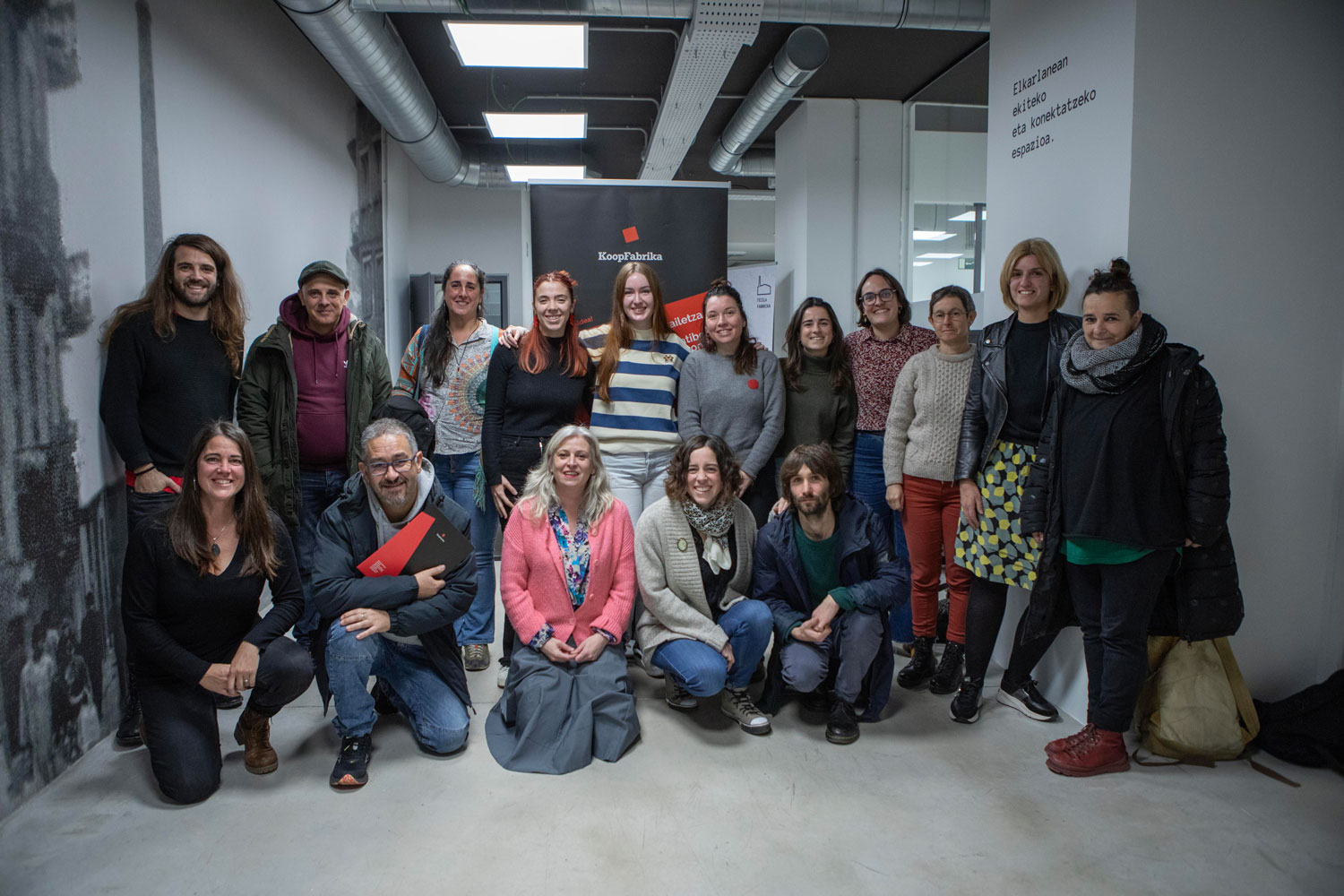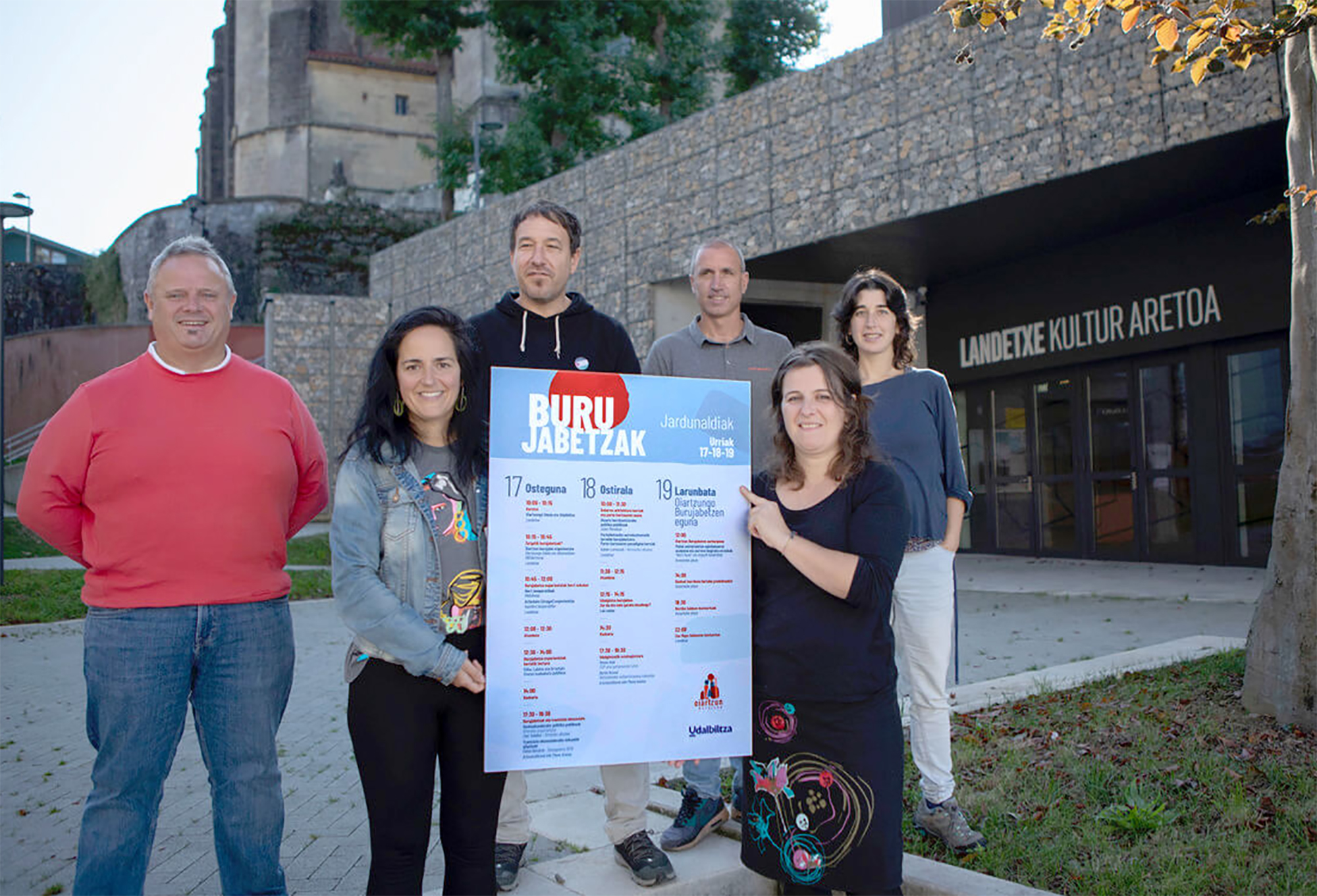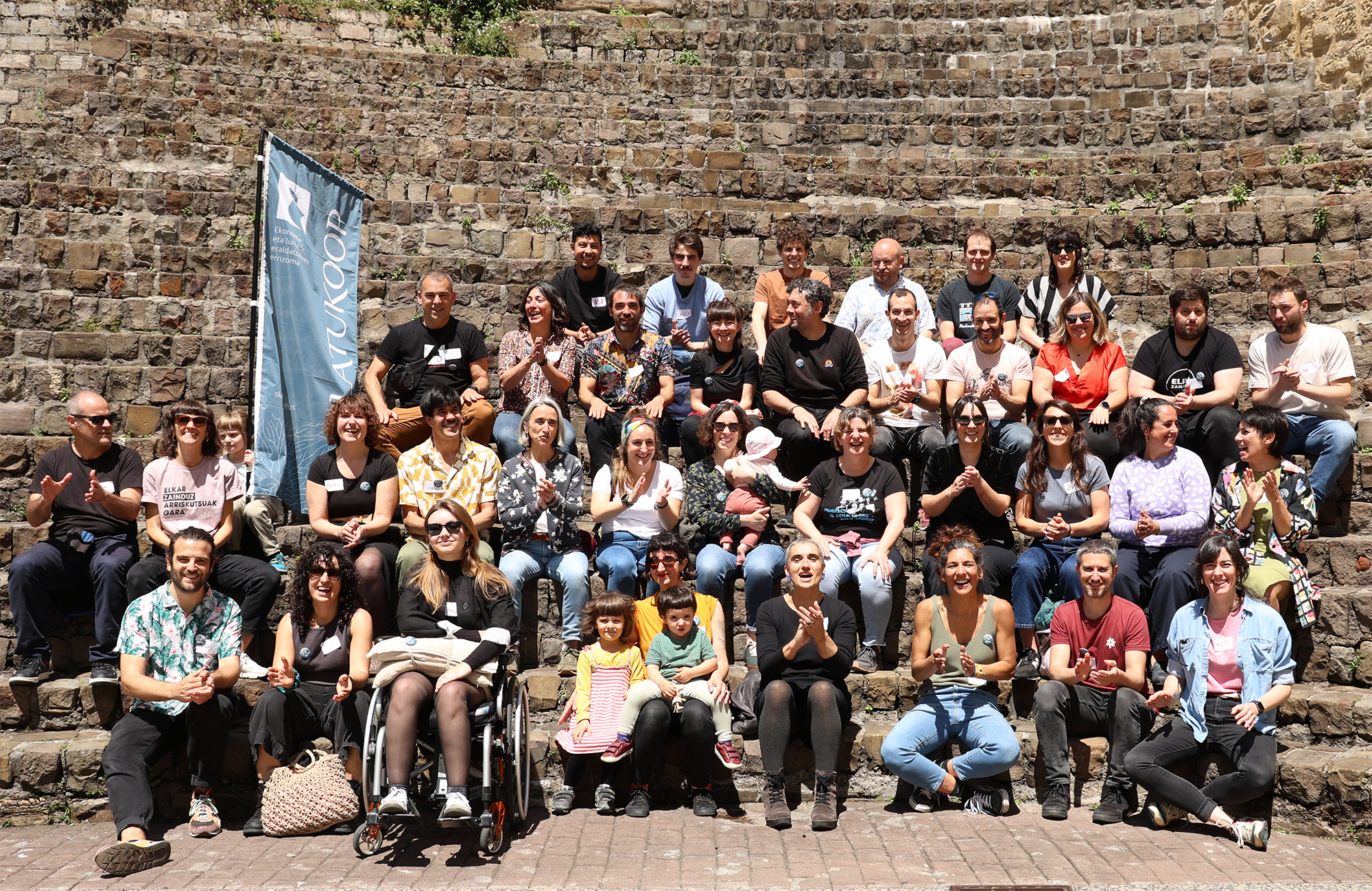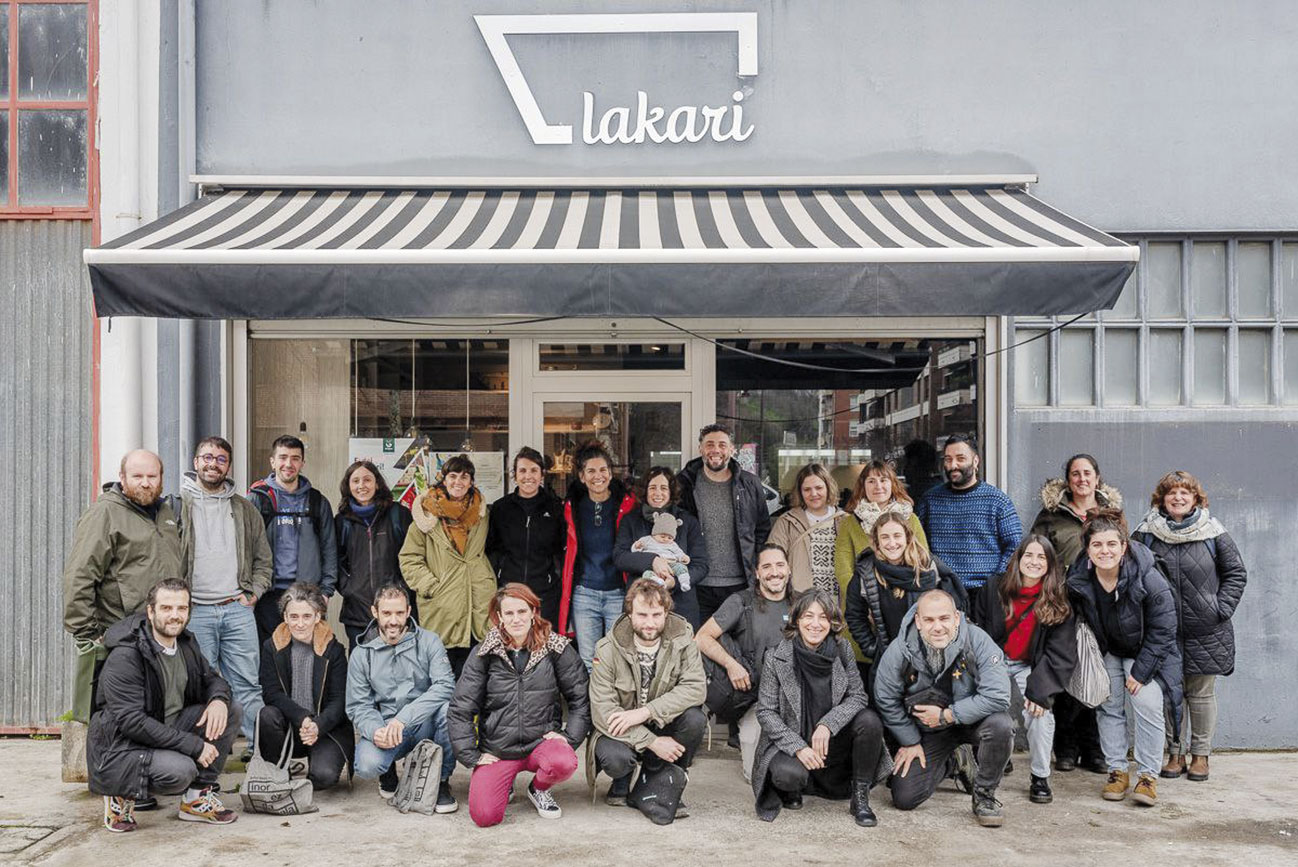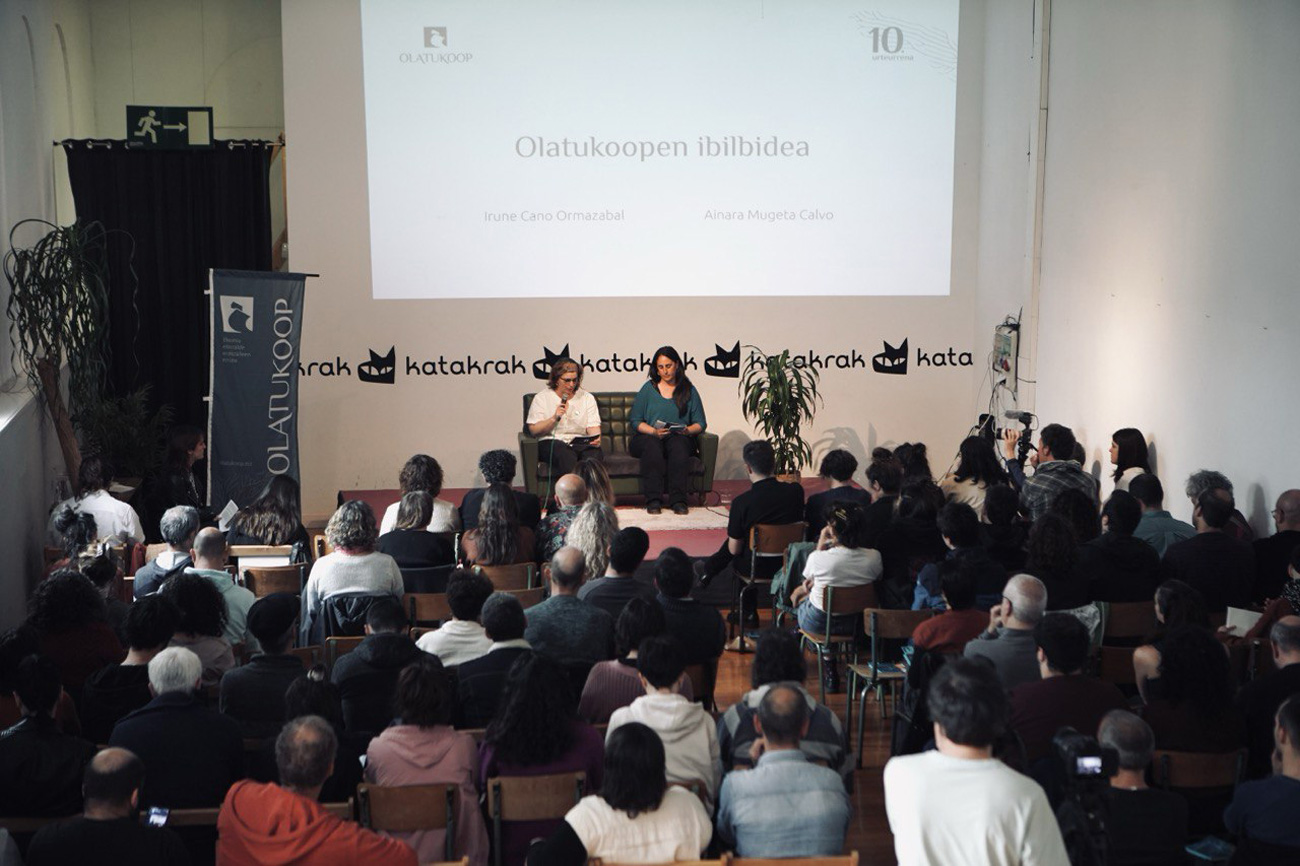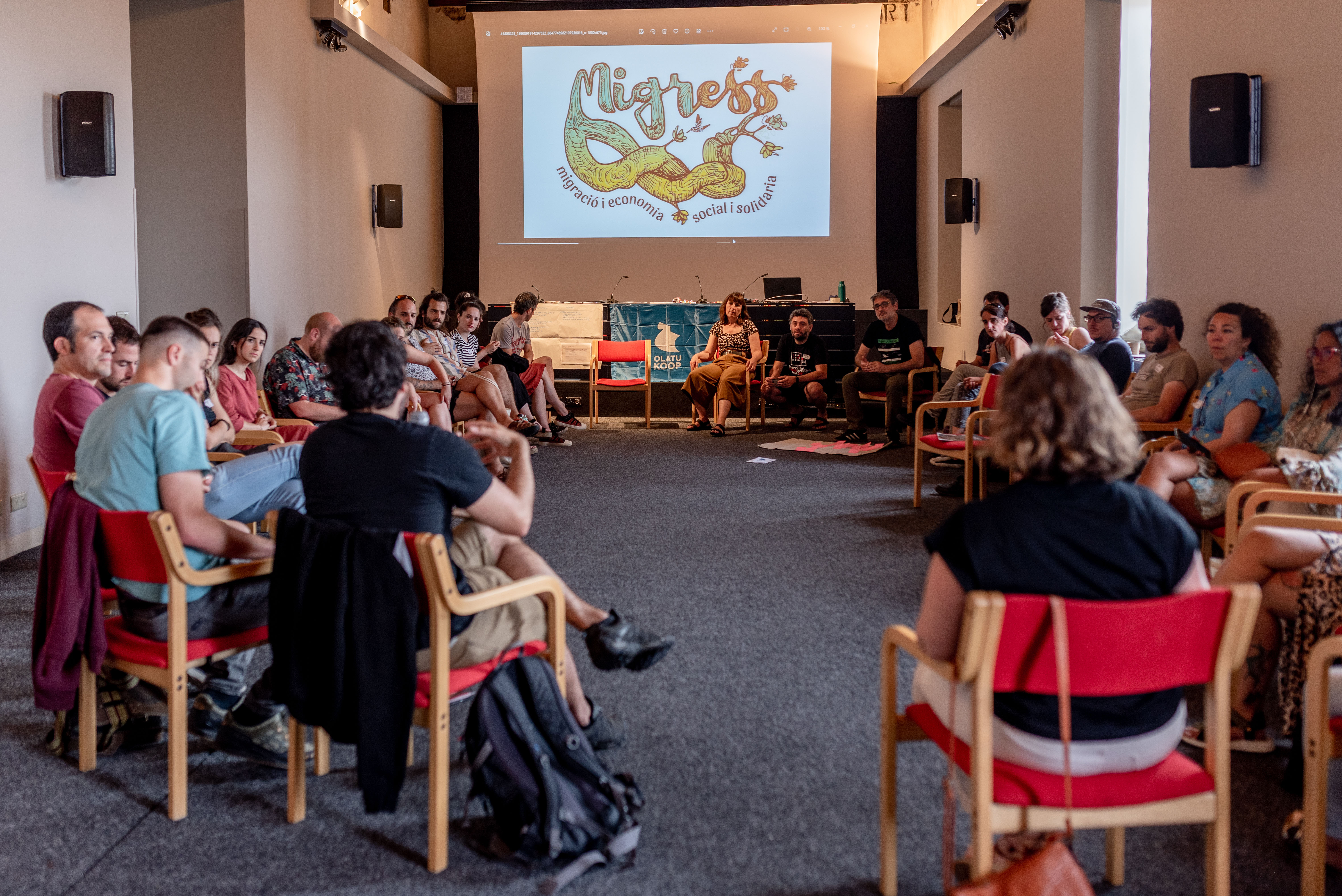“Roles are also subtly recreated at work”
- The Beterri Saretuz project has held a training session on how we work equality in companies. In addition to collecting information on the Equality Plans, they have reflected on how to put equality into practice.
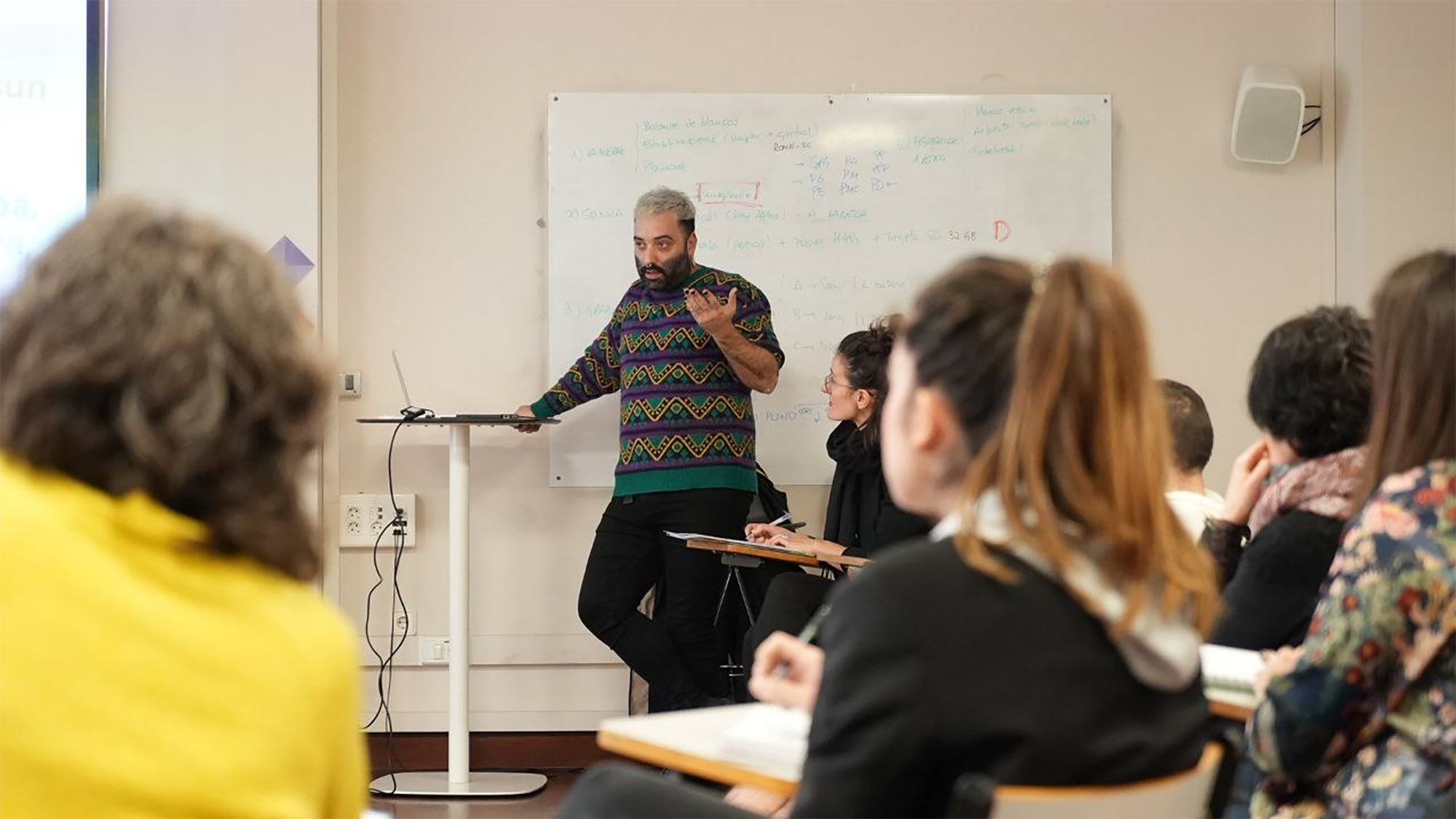
On the day against the wage gap, the transforming economic network of the region of Beterri-Buruntza, Beterri Saretuze, has held a special training in Iturola Elkarlan Sorgunea de Hernani. Under the title Equality in the company, representatives of cooperatives and assistants have analysed how to work equality in the workplace. They have had a dual objective: on the one hand, to collect technical information on the Equality Plans and, on the other, to reflect beyond them on what can be done in practice at work.
The technique of the Elhuyar Foundation, Joana Regueiro, explained that an equality plan allows working in this area “consciously and planned”, but also requires a “continuous evaluation” in the implementation of such a plan. Regueiro has detailed in its consultation the rules and developments that the legislation of the Spanish State and CAPV provides.
.jpg)
Wage gap reduction audit
In 2019 there was a need to amend the Spanish organic law on equality policies of 2007, when the Spanish Government published several decrees. Companies with more than 50 employees must have an Equality Plan since then. Smaller companies are not obliged to do so, but they are required to have a harassment protocol and keep a wage register.
“Below is an awareness-raising and prevention strategy”
Joana Regueiro (Elhuyar)
According to the technician, the “principle of remuneration transparency” is one of the main changes introduced by the new regulations. It includes wage registration, and companies with more than 50 workers must conduct an audit to analyse gender differences and “indirect discrimination”. Because, according to Regueiro, in many companies this discrimination remains “ignored”.
LAB has recently provided data confirming these words. According to this, in Euskal Herria the wage gap between two jobs of the same category can be 90% and a man can earn twice as much as a woman for the same job.
According to Regueiro, the law is an important instrument to deal with these situations: “The need to give this information to workers”. He explains that so far wage policies have not been public, and now the law obliges companies to share with workers.
.jpg)
The Member of Elhuyar also stressed the shortcomings of the law, for example, in the case of cooperatives it has left them in a “limbo”, as the measures affect the worker and not the partner.
During Question Time, they ask Regueiro about the rigidity of protocols against persecutions and recognize that they are very “conventional”, but that they try to transfer them to the reality of the company or organization: “There is a strategy below, oriented to sensitization and prevention”.
Equality vs. Equality
Ibai Fresnedo, a member of the cooperative Hiruki Larroxa, has participated in the second part of the training programme and offers advice and support on equality issues. He explains that they do not design the Equality Plans, but they help companies and institutions to clear the knots and solve the doubts that arise along the way.
Ibai Fresnedo (Hiruki Larroxa)
He considers that “the Equality Plans have no reflection in this daily culture of the company” and that there are great deficiencies from the point of view, such as the identification of “symbolic” areas that are activated in the relationships.
Fresnedo mentions the most common knots that are usually created: the so-called “false equality” that feeds politically correct or sociable speeches, or androcentism. In the latter case, also in the work “the roles are subtly regenerated, or at least tend to do so due to factors external to companies”, he stressed.
Throughout the session it has also opened a path of reflection: “Equality and parity are the same?” As Fresnedo explained, it is one thing that resources or aid are offered in a uniform and uniform way to all, and the other is that these resources adapt to the circumstances of each one, “identifying differences”. But, for Hiruki Larrox, it would be best to “fix the same system”, so that these differences are not radical, along the path of social justice.
.jpg)
The rapporteur has closed the sitting on social imbalances. He has made it clear that oppression by genders, races and classes feed each other and that before it is necessary an intersectional approach, as has been done from feminism: “Because equality is universal, we cannot stay just with gender”, explained Fresnedo. Therefore, he says, it would be best if it were a “social strategic plan” covering all these issues.
This was the second of the three training sessions organized by Beterri Saretuzek and, after the training, offered cooperatives, agents and participating projects the opportunity to collaborate to deepen and take steps.
Budgets and the closure of annual accounts are nothing more at this time, from the domestic economy to most of the socio-economic spaces that we share. Large companies have begun to extract calculators and implement major plans for 2025. Small and medium-sized institutions and... [+]
One of the major projects developed by Olatukoop with other actors is KoopFabrika, a programme created in 2017 with the aim of boosting social entrepreneurship and which is currently underway.
Initially, the first idea was that the cooperatives and agents that gathered around... [+]









